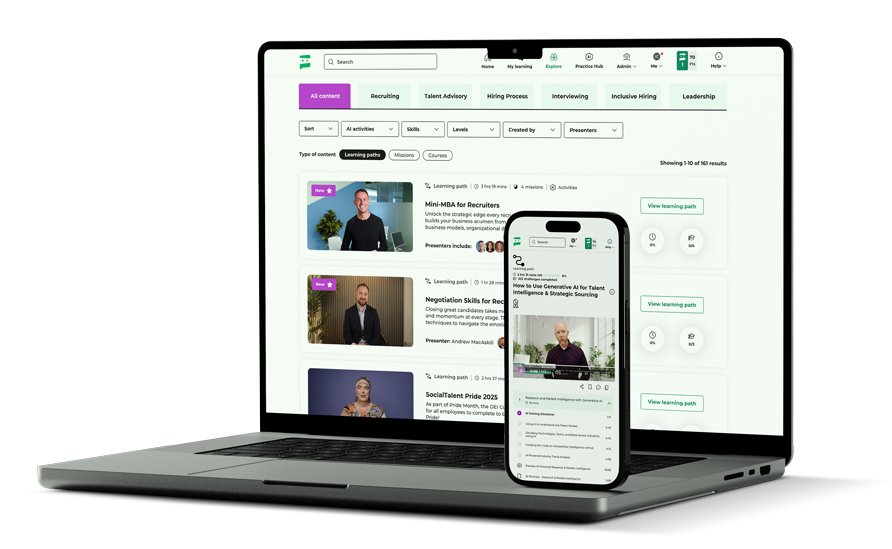
By Johnny Campbell
Spend five minutes talking about Gen Z in a room full of talent leaders and you’ll hear everything from admiration to exasperation.
“They want purpose.”
“They ghost without warning.”
“They’re values-driven.”
“They’re too emotional.”
“They don’t do corporate BS.”
At a recent Consero panel on attracting and retaining Gen Z talent, the conversation cut through those tired tropes. What emerged wasn’t a caricature – it was a wake-up call.
Because for all the debate around what makes Gen Z different, one thing became clear:
They’re not asking for the impossible.
Sure, their demands may clash with legacy processes or outdated thinking. But most of what Gen Z is pushing for – flexibility, purpose, transparency – are things most employees have always wanted. This generation is just asking earlier, and asking louder.

Work-Life Balance Isn’t a Perk. It’s a Baseline.
Millennials started the conversation about balance. Gen Z drew a line in the sand.
If you’re hiring early-career professionals today, you’re not just competing on compensation – you’re competing on boundaries. Gen Z wants to know:
- Will this job respect my time?
- Will I have to sacrifice my personal life to progress?
One panellist mentioned Gen Z employees hesitating to accept promotions because they feared the impact on their work-life balance. It was surprising – and completely understandable. This generation isn’t driven by the fear of falling behind. Their urgency is different. They want to grow, but not at any cost.
It forces a shift in the employer value proposition. It’s no longer just what you offer – but how you offer it. Do you reward burnout? Or honour sustainable careers?
As panelist Dana Goedel put it:
“They want you to care. And they want work-life balance.”
For Gen Z, Speed Signals Credibility
A recurring theme from the panel? Be fast – or be forgotten.
From interview scheduling to feedback loops to offer stages, Gen Z talent expects momentum. And they’re not wrong.
Employers often ask candidates to move quickly and show urgency. But the hiring process? It drags. Three-week wait times. Endless interview panels. Radio silence.
One panelist said it best:
“If we say we’re agile but take five weeks to hire an analyst, what does that signal?”
This isn’t just about winning talent – it’s about aligning with them. A slow, inconsistent process signals a slow, inconsistent culture. And Gen Z will notice.
Learn more: A Playbook for Authentically Attracting Gen Z Talent
Don’t Sell Culture. Show It.
Gen Z doesn’t buy polished employer branding anymore.
They want real people, real stories, and real talk. They want to know what’s actually happening inside your company – not just what the career site says.
That means operationalizing authenticity:
- Train interviewers to reflect the real culture.
- Share development stories from real employees.
- Say, “We’re not for everyone – and that’s okay.”
Gen Z isn’t looking for perfection. They’re looking for consistency. As Robyn Jordan shared during the discussion:
“Don’t be something you’re not externally. Gen Z has about a negative 10 tolerance for that. Nothing is worse than an EVP you can’t live up to.”
Learn more: A Guide to Gen Z Onboarding
Career Ladders Are Out. Career Lattices Are In.
Linear career paths? They’re not the default anymore.
Gen Z is less interested in moving up and more interested in moving in ways that align with who they are. That might mean lateral shifts, short-term projects, or unconventional “stretch” roles.
This aligns with what Dr. Bev Kaye has long advocated on the SocialTalent platform: a flexible approach to career development based on strengths, interests, and individual identity.
For employers, it’s a mindset shift: From managing careers to enabling them. Support internal mobility. Make non-linear growth visible. And give people permission to explore.
Gen Z Doesn’t Want Feedback. They Want a Relationship.
Perhaps the most human insight from the panel was about feedback.
Gen Z doesn’t engage with top-down critique. But they do respond to collaborative conversations – ones that begin with “How do you feel about that?”
It’s a small change, but it requires managers to show up differently. Not as bosses, but as partners. It means building trust over time through regular, honest dialogue.
This kind of culture doesn’t come cheap. It takes empathy, consistency, and leadership training. But the payoff? Retention, growth, and psychological safety.
So Are They Different? Or Just More Honest?
Yes, Gen Z can be impatient. Their expectations may challenge your systems and stretch your budgets. And their communication style might puzzle older generations. (Yes, the full stop at the end of a text can be seen as passive-aggressive!)
But every generation frustrates the one before it.
What makes Gen Z unique is how much agency they bring from day one. They question, they push, and – if they’re not satisfied – they leave.
That’s not entitlement. That’s clarity.
And if we don’t dismiss or patronize that clarity, we might just learn something.
Maybe It’s Not About Managing Gen Z – But Learning From Them
The most successful organizations in the coming decade won’t be those who “crack” Gen Z. They’ll be the ones who listen.
Not to every demand, but to the deeper signals. To what matters. To what’s negotiable – and what’s not.
Because what Gen Z is asking for isn’t radical. It’s refreshingly reasonable:
- A process that respects their time.
- A job that aligns with their values.
- A culture that’s consistent.
- A manager who treats them like a person.
That’s not a wishlist. That’s a blueprint.
And if we’re open to it – even a little – we might not just attract the next generation of talent. We might build workplaces we’re all proud of.
This article originally appeared in Johnny Campbell’s Talent Leadership Insights LinkedIn newsletter. Click here to subscribe!




